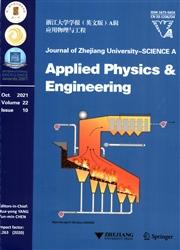Determination of the dynamic characteristics of locomotive drive systems under re-adhesion conditions using wheel slip controller
IF 3.9
3区 工程技术
Q1 ENGINEERING, MULTIDISCIPLINARY
引用次数: 0
Abstract
To investigate the re-adhesion and dynamic characteristics of the locomotive drive system with wheel slip controller, a co-simulation model of the train system was established by SIMPACK and MATLAB/SIMULINK. The uniform running and starting conditions were considered, and the influence of structural stiffness of the drive system and the wheel slip controller on the re-adhesion and acceleration performance of the locomotive was investigated. The simulation results demonstrated that the stick-slip vibration is more likely to occur in locomotives with smaller structural stiffnesses during adhesion reduction and recovery processes. There are many frequency components in the vibration acceleration spectrum of the drive system, because the longitudinal and rotational vibrations of the wheelset are coupled by the wheel–rail tangential force when stick-slip vibration occurs. In general, increasing the structural stiffness of the drive system and reducing the input energy in time are effective measures to suppress stick-slip vibration. It should also be noted that inappropriate matching of the wheel slip controller and drive system parameters may lead to electro-mechanical coupling vibration of the drive system, resulting in traction force fluctuation and poor acceleration performance.用轮滑控制器确定再附着条件下机车驱动系统的动态特性
为研究采用轮滑控制器的机车驱动系统的再粘着特性和动态特性,利用SIMPACK和MATLAB/SIMULINK建立了列车系统的联合仿真模型。考虑均匀运行和起动条件,研究了驱动系统结构刚度和轮滑控制器对机车再附着和加速度性能的影响。仿真结果表明,在减粘恢复过程中,结构刚度越小的机车越容易发生粘滑振动。由于发生粘滑振动时轮对的纵向振动和旋转振动受轮轨切向力耦合,驱动系统的振动加速度谱中存在较多的频率分量。一般来说,增加驱动系统的结构刚度,及时降低输入能量是抑制粘滑振动的有效措施。还需要注意的是,轮滑控制器与驱动系统参数匹配不当,可能导致驱动系统机电耦合振动,导致牵引力波动,加速性能差。
本文章由计算机程序翻译,如有差异,请以英文原文为准。
求助全文
约1分钟内获得全文
求助全文
来源期刊

Journal of Zhejiang University-SCIENCE A
工程技术-工程:综合
CiteScore
5.60
自引率
12.50%
发文量
2964
审稿时长
2.9 months
期刊介绍:
Journal of Zhejiang University SCIENCE A covers research in Applied Physics, Mechanical and Civil Engineering, Environmental Science and Energy, Materials Science and Chemical Engineering, etc.
 求助内容:
求助内容: 应助结果提醒方式:
应助结果提醒方式:


